Parents' anger at prison mental health review's 'empty words'
- Published
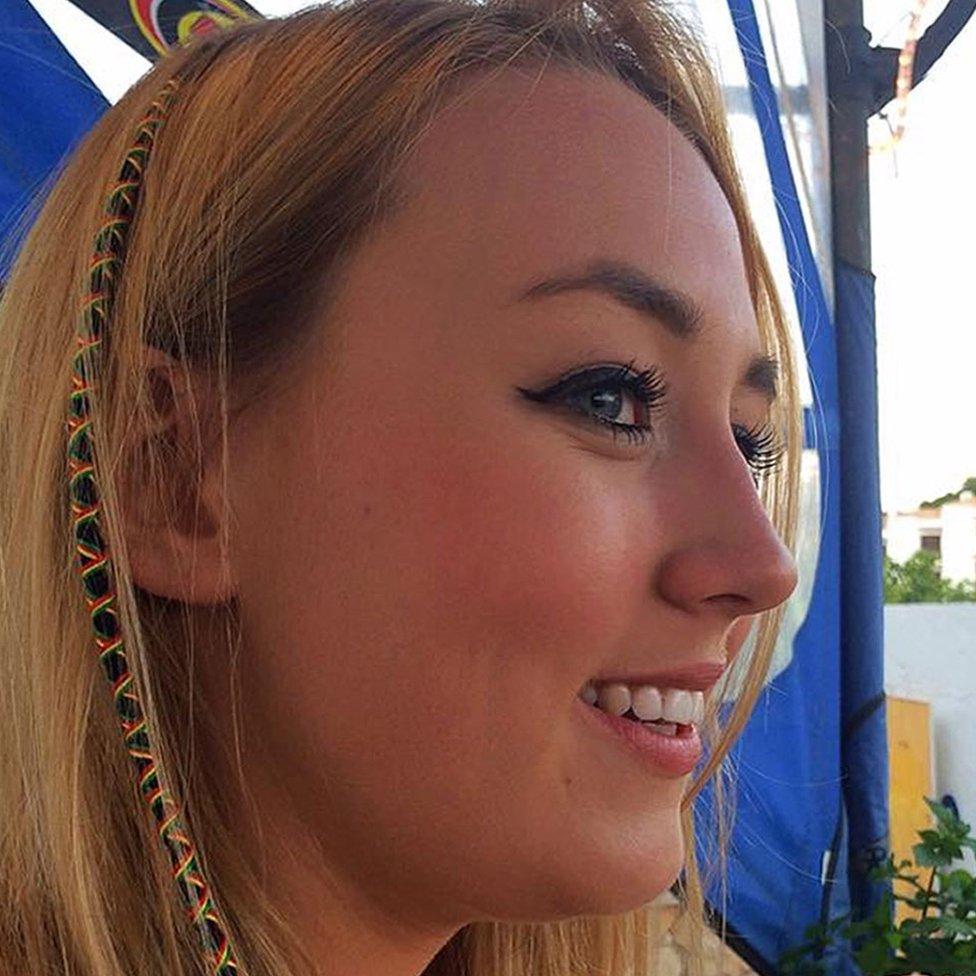
Katie Allan was jailed after admitting knocking down a teenage boy while drunk at the wheel of her car
The parents of a young woman who took her own life in prison have criticised the Scottish government for not taking mental health concerns seriously.
Linda and Stuart Allan's daughter Katie, 21, was suffering from depression when she took her own life at Polmont Young Offenders Institution.
The Allans say 80 recommendations made in a report published two years ago have not been acted upon.
However, Scotland's inspector of prisons has praised some progress.
Mr and Mrs Allan have been campaigning for better mental health care in Scottish jails since Katie died in 2018.
They have also called for a fatal accident inquiry into Katie's death.
Katie, a geography student at Glasgow University, was serving a six-month term for drink-driving and hitting a 15-year-old boy, who was knocked unconscious. The incident happened in Giffnock, East Renfrewshire, in August 2017.
Mr and Mrs Allan claimed bullying and "humiliating" strip searches led their daughter to take her own life.
They said prison staff had failed to heed warnings that Katie was "vulnerable" and had a history of self-harming.
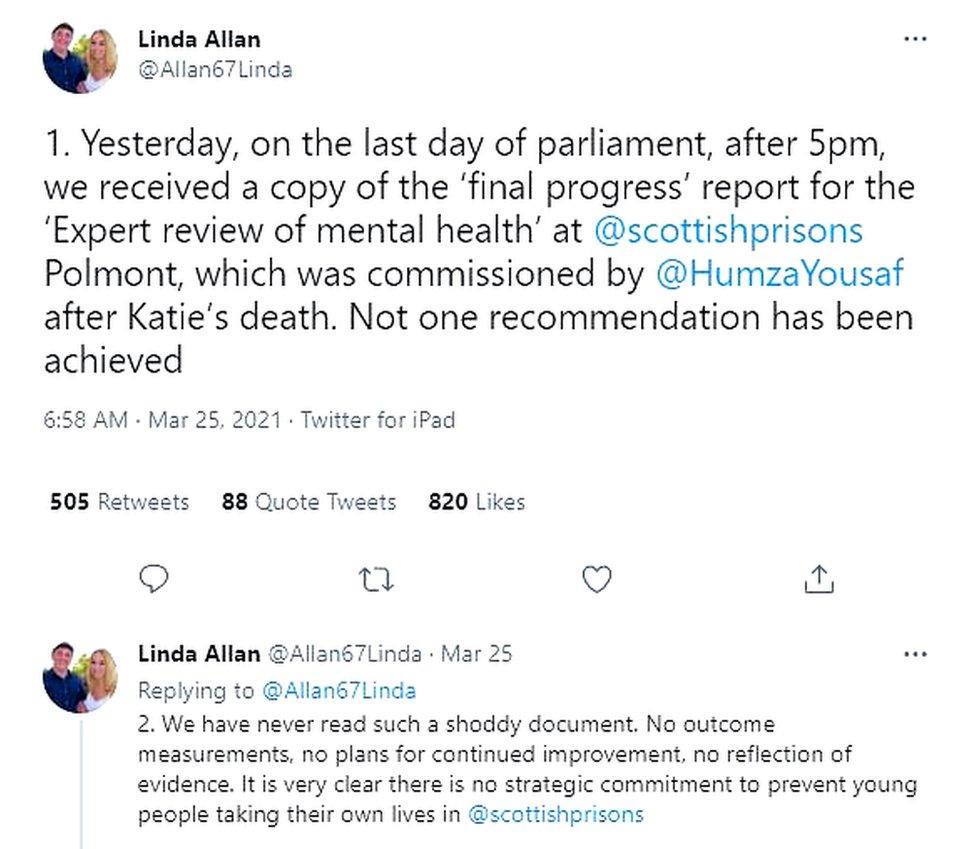
Linda Allan has criticised the timing of the letter she was sent
The family received an update from Justice Secretary Humza Yousaf last week on progress made on the recommendations in a review of mental health services for young people in custody, published in May 2019.
Mrs Allan, who is an associate professor at Glasgow University, criticised the timing of the letter, sent on the last day of Parliament before it was suspended for the election campaign.
Speaking on the Good Morning Scotland programme, Mrs Allan said: "They have produced a report with 80 recommendations, none of which have been fulfilled. All of which are full of empty words, with repeated statements like the Scottish Prison Service (SPS) is 'looking at' or 'the SPS will...'.
"We also know that since Katie's death, 22 people have taken their lives. So it is blatantly obvious that nothing has changed."
'Words but no action'
She acknowledged that mobile phones have been made available, but Mrs Allan said these are not available overnight when young people are most at risk of taking their own lives.
Mrs Allan also said that in 2019, the year after Katie's death, the highest rate of suicide in Scottish prisons in a decade was recorded and her concern is that there are "words, but no action".
The couple said that their daughter's experience in jail was "horrendous".
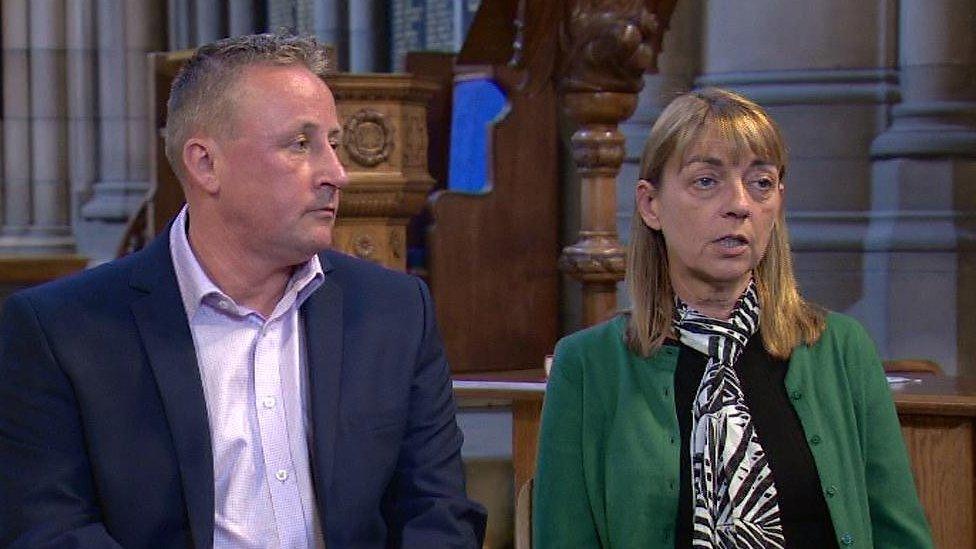
Stuart and Linda Allan have been campaigning for better mental health care in Scottish jails
Mrs Allan said: "We raised concerns on eight separate occasions about our daughter. She was relentlessly bullied, particularly in the days leading up to her death.
"We had to instruct a solicitor to intervene to allow Katie to see a dermatologist. She was seen by a mental health nurse who undertook no standardised assessment. We see from Katie's prison records that staff were aware of the bullying and Katie's distress and they took no action."
HM Chief Inspector of Prisons for Scotland, Wendy Sinclair-Gieben, told the BBC that she was grateful to see the response.
She said: "Out of the 80 recommendations, there are 25 clear things that have happened, there are a lot of things that are paused or stalled by Covid, and a lot of things that would take a lot longer to resolve. For example, the information-sharing between police, courts the health service, this is going to take time.
"I was really pleased that there has been the allocation of funding for additional mental health staff, allocation of funding for the upgrade of one of the units in Polmont, and that routine strip-searching has stopped. "
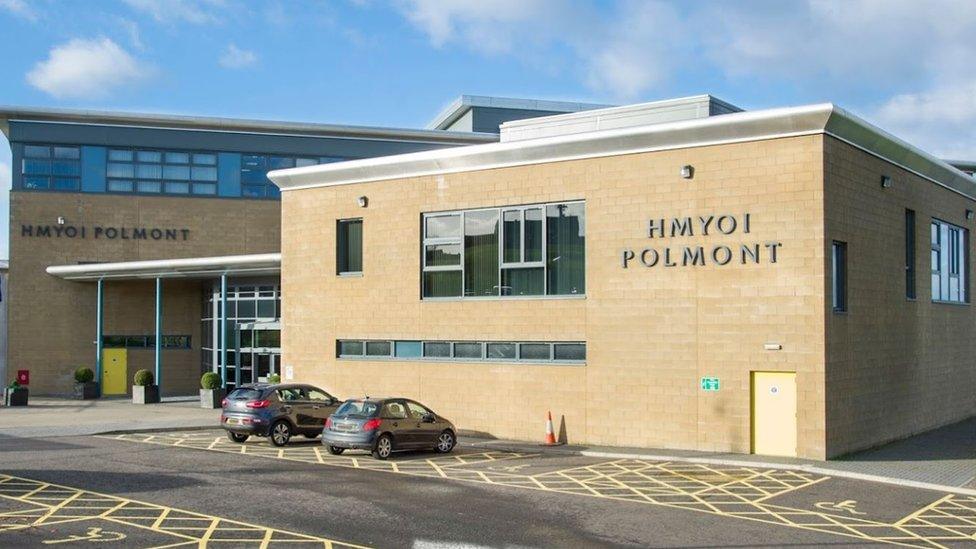
Katie Allan died at Polmont Young Offenders Institution
She said she was happy to see that staff had gone through mental health first aid training, and that in-cell phones were among "some really important things that have happened".
However, she admitted: "You would think after two years there would have been more progress, but we've had Covid. And when you go through the report a lot of things have been stalled, within the NHS in particular.
"The SPS have struggled with reduced staff numbers. I am quite pleased and I know from my own experience of going into prisons that some of the key recommendations have gone ahead.
"If Covid hadn't happened, I think more would have been achieved, but I understand the family's disappointment completely."
Justice Secretary Humza Yousaf said the Scottish government had taken the issues seriously.
'Progress will not end here'
He said he had fully updated HM Chief Inspectorate of Prisons, the review author Dr Helen Smith, and Parliamentary committees to provide them with an update of progress.
Mr Yousaf said: "I have been clear that progress on these recommendations will not end here and improvement will continue in operational practice with our ultimate aim to oversee the continued fall in the numbers of young people entering our criminal justice system in the first place.
"Understandably, work to progress ongoing recommendations of the review was delayed for a number of months in the first wave of the pandemic in 2020."
If you've been affected by issues raised in this story, sources of support are available via the BBC Action Line here.
You can call Samaritans free on 116 123, email them at jo@samaritans.org, or visit www.samaritans.org to find your nearest branch.


Related topics
- Published25 October 2018
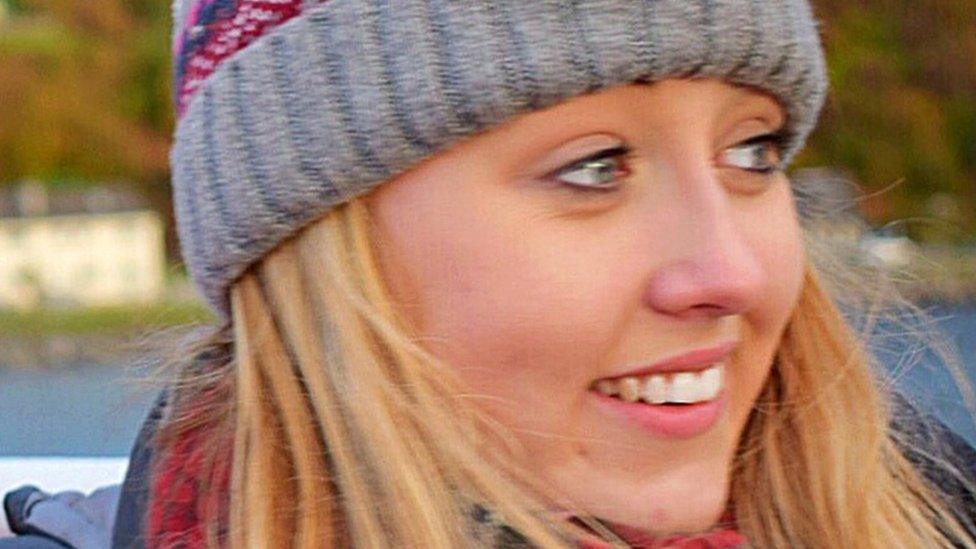
- Published2 April 2019
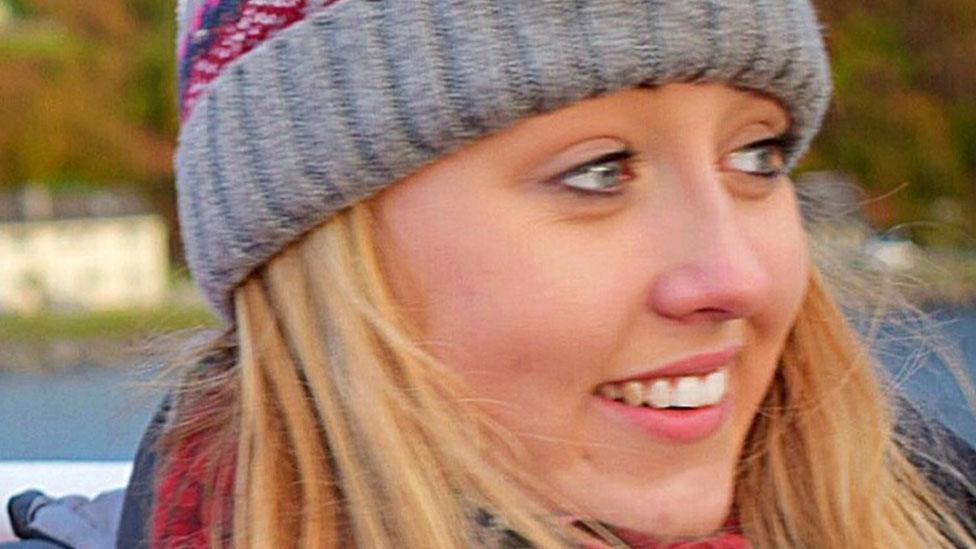
- Published21 May 2019
